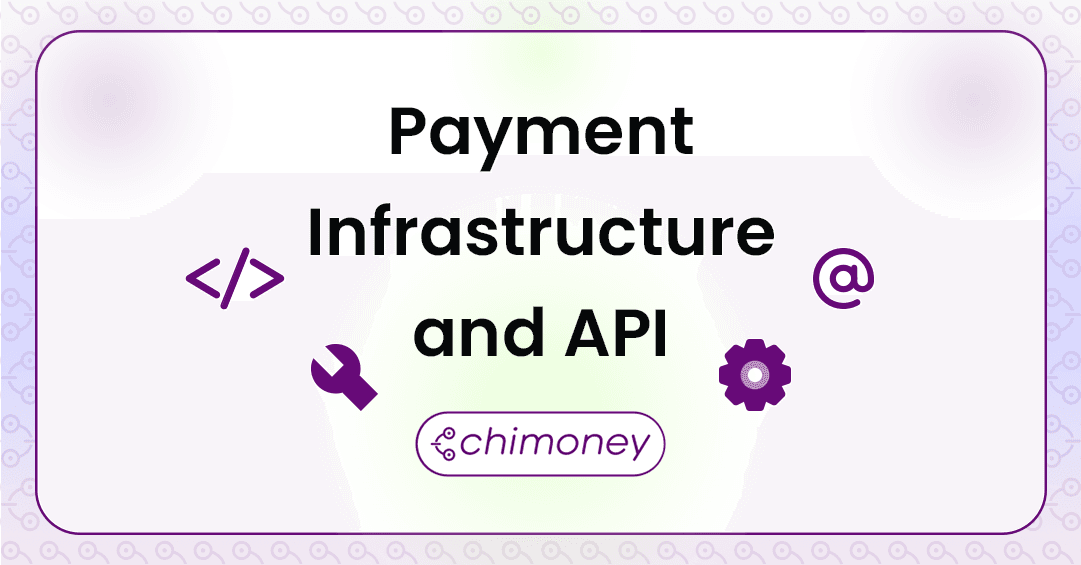Why Flexible Payout Solutions Matter for Marketplace and Gig Economies
 Chukwuemeka Abuba
Chukwuemeka Abuba
In today’s growing digital world, there has been a continuous shift in how employers connect with the workforce. The demand for gig workers has continued to grow since the COVID-19 pandemic. Data from the World Bank shows that gig economy accounts for up to 12% of labor force globally. However, finding a payment service that enables gig workers to receive payment on their terms has become a recurring challenge.
Challenges such as differences in currencies and payment systems between freelancers and employers that cause payout delays and other bottlenecks are factors why freelancers and platform owners should adopt Flexible Payout Solutions that facilitate faster payment in freelancers' preferred currencies.
What are Flexible Payout Solutions?
Flexible payment solutions provide tailored payment systems that allow gig workers to receive money in their preferred currencies and on any payment options they choose. Simply put, it supports quick and seamless payment to workers across various countries through cryptocurrencies, bank transfers or mobile wallets, removing payment barriers like currency differences. An example of a flexible payment solution is Chimoney’s API.
The Importance of Flexible Payout Solutions
Flexible payout solutions provide a fast and real-time payout that benefits actors in the gig economy and online marketplace. It is vital to see why this solution has become a go-to option for payment. Here are factors why flexible payout solutions is a better option for handling diverse payments across countries and currencies.
User Convenience and Satisfaction: Offering flexible payment options such as bank transfers, digital wallets, and mobile money payment provides gig workers the flexibility to choose among the more convenient options, thereby boosting user experience.
Seamless Currency Conversion: By making it possible for multiple currencies to be available locally for easy conversion, flexible payout solutions enable gig workers to experience stress-free international transactions, thereby removing the challenges of local currency conversion and additional transaction fees.
Global Reach and Inclusivity: Flexible payout solutions handle diverse payments in user terms, allowing workers or sellers globally to receive payment in their local currencies. It also supports payments through local methods to meet the needs of global users.
Faster Payments: Since the gig economy operates remotely without physical contact, delay in payment could affect trust. Flexible payment solutions offer a quicker transfer like instant wallet transfers, helping gig workers to receive payment as at when due.
Overview of Marketplace and Gig Economies
A marketplace is an online platform that connects third-party sellers and buyers and helps facilitate buying and selling. It's an intermediary that helps buyers find sellers who advertise their products and services. A marketplace provides the platform for a gig economy to thrive by easily connecting gig employers to gig workers. You may be wondering what the gig economy means. Simply put, the gig economy is temporary work that provides a short-term position to freelancers who work independently. The gig economy guarantees flexibility as the workers can work remotely without being confined in a space.
Actors Driving Marketplace and Gig Economies
The two key actors that drive the marketplace and gig economies are the employer and the gig worker. They complement each other by offering value in reward and services. Here are the two key actors:
The Gig Employer:
An employer in a marketplace and gig economy refers to a person or business that offers employment to a gig worker for a service or product and rewards the worker for their service.
The Gig Worker:
Gig workers offer extensive services or products to an employer on a temporal or contract basis to get a monetary reward at the end of their task.
Challenges Faced by Gig Economy Workers and Marketplace Sellers
The gig economy workers and marketplace sellers often experience underlying challenges that affect revenue generation and overall user experience.
Here are some of the challenges they face:
Currency Disparities: A huge concern for gig economy workers and marketplace sellers is how they could convert the currencies they receive to their local currencies without incurring extra charges. The exchange rate changes during conversion, and the additional charges could affect earnings.
Delayed Payments: Delay in payment is a common experience for gig economy workers and marketplace sellers. This delay in cross-border transactions is frustrating for users and could affect trust.
Limited Payment Methods: Workers in the gig economy cut across various countries with unique means of receiving payment. Many platforms only have limited payout options, which may not be accessible to users.
Lack of Transparency: There are incidents where workers and sellers lose a large chunk of their earnings due to hidden fees during payout. Some platforms also fail to handle chargebacks and refunds efficiently.
How Chimoney’s API Addresses These Issues
Chimoney’s API enables flexibility in payment structure and offers a wide variety of services to over 100 countries on a single Platform and API. Here is how Chimoney’s API addresses challenges faced by gig economy workers and marketplace sellers.
Multiple Currencies Options: Once you sign up with Chimoney’s API, you can integrate multiple currency payout options, including gift cards and cryptocurrencies. The API endpoints allow you to initiate a transaction from a Chimney wallet to a recipient's preferred local currency.
Multiple Payout Methods: Chimoney provides multiple payout options, such as Payout Chimoney, Payout Mobile Money, Payout Bank, Payout Giftcard and more. By integrating Chimoney’s API, developers or platform owners can initiate transactions from its multi-currency wallet to a receiver payment option.
Cross-border Payouts: Chimoney’s API eliminates cross-border payment complexities by providing seamless payment solutions, multi-currency, and allowing payment across various countries. It supports local compliance with regulators and helps platform owners achieve global reach.
Secured and Transparency: Every transaction carried out when using Chimoney’s API is fast and secure. The payment process is simple and detailed, with transactions done swiftly, empowering users to control their cash flow and payment history. There are no hidden fees during the transaction.
Ease of integration: Chimoney’s API offers a flexible API that developers can easily integrate with, launch and scale payment solutions. It also provides robust services that can integrate into any marketplace platform irrespective of the tech stack.
Conclusion
Chimoney’s API provides wholesome and seamless cross-border payout solutions. It guarantees instant, secured and simplified payment options for workers in over 100 countries. Whether you are a developer, a platform owner, or a gig worker, with Chimoney’s API, your payout and disbursement needs are well covered. Get started now.
Subscribe to my newsletter
Read articles from Chukwuemeka Abuba directly inside your inbox. Subscribe to the newsletter, and don't miss out.
Written by

Chukwuemeka Abuba
Chukwuemeka Abuba
I am a front-end engineer and a technical writer. I specialize in building visually appealing, interactive, and functional web applications. In my spare time, I research and write about web technologies, simplifying complex topics through my articles.